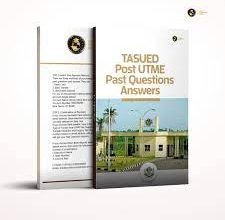Duke University is one of America’s universities with great opportunities to offer to students. Get to know more about how to study at Duke University, its tuition fees, scholarships, courses, and ranking.
Here is a little overview of Duke University.
Duke University is a private, non-profit, research university established in 1838 by Methodists and Quakers. Formally known as Trinity College, Duke University is located in Durham, North Carolina.
Duke University has academic affiliations with AAU, COFHE, 568 Group, URA, CDIO, ORAU, NAICU, IAMSCU and Sporting affiliations with NCAA Division I FBS – ACC. It has a Suburban/Urban Campus and an official website at www.duke.edu.
About Duke University
Duke University offers 46 arts and sciences majors, four engineering majors, 52 Minors (two in engineering), and Program II which allows students to design their own interdisciplinary major in arts & sciences, and IDEAS that allows students to design their own engineering major.
Students who want to study at Duke University can pursue a major, and also pursue a combination of a total of up to three including minors, certificates, and/or a second major. Twenty-four certificate programs also are available.
Eighty-five percent of undergraduates who want to study at Duke University 2019 enrolls in the Trinity College of Arts and Sciences, while the rest are in the Pratt School of Engineering. The Faculty Scholarly Productivity Index ranked Duke’s faculty first in the nation in the fields of Oncology and Cancer Biology, Biomedical Engineering and Applied Economics.
The Public Policy, Statistics, Chemistry, Environmental Science, Medicine, and Molecular Genetics departments (among others) all ranked among the top five. Several other departments including Electrical Engineering, Mechanical Engineering and Nursing ranked in the top ten.
It’s advisable for international students to study at Duke University because the university is ranked among the top 10 in the following college ranking publications: U.S. News & World Report (9th), USA Today (3rd), Washington Monthly (6th), Kiplinger (4th), The Wall Street Journal (5th overall), Forbes (8th overall), Forbes (9th most billionaires), The Washington Post (7th), Princeton Review (5th dream colleges), CollegeFactual (4th) and Business Insider (7th).
Duke University Ranking
Duke is often ranked among the world’s best universities and holds the top-ten position in various national rankings. This makes it the more reason applicants should Study at Duke University. As of 2017, 11 Nobel laureates and 3 Turing Award winners have been affiliated with the university.
According to a study carried out by The New York Times, Duke’s graduates are shown to be the most sought-after and valued graduates in the world. In 2019, Forbes listed Duke among the top American Colleges.
Duke is ranked fifth among national universities to have produced Rhodes, Marshall, Truman, Goldwater, and Udall Scholars. This serves as an edge for foreign nationals to study at Duke University for a conducive environment for learning.
Duke University is ranked fourth globally in terms of primary affiliations. Admission to Duke according to U.S. News & World Report is the “most selective” and according to The Huffington Post, Duke is one of the ten toughest universities in the United States to get into.
The Duke University graduate and professional schools include the Graduate School, the Pratt School of Engineering, the Nicholas School of the Environment, the School of Medicine, the Duke-NUS Medical School, the School of Nursing, the Fuqua School of Business, the School of Law, the Divinity School, and the Sanford School of Public Policy.
In 2024, College vine ranked Duke University as the 2nd best Pre-Med school in the U.S.
According to U.S. News & World Report 2024 rankings, Duke University is ranked 12th in National Universities, 18th in the world by the Times Higher Education World University Rankings. QS World University Rankings ranked Duke university 42nd in the world in its 2024 rankings.
Scholarships at Duke University
From 2001 to 2011, Duke University had the sixth-highest number of Fulbright, Rhodes, Truman, and Goldwater scholarships in the nation among private universities.
Roughly 50 percent of all Duke students receive some form of financial aid, which includes need-based aid, athletic aid, and merit aid.
About 60 merit-based full-tuition scholarships are offered, including the Angier B. Duke Memorial Scholarship, awarded for academic excellence, the Benjamin N. Duke Scholarship awarded for community service, and the Robertson Scholars Leadership Program, a joint scholarship and leadership development program granting full student privileges at both Duke and UNC-Chapel Hill.
Other available scholarships are geared toward students in North Carolina, African-American students, children of alumni, and high-achieving students requiring financial aid.
Find out more by clicking the button below.
Duke University Admission Requirements
Duke University has an Acceptance Rate of 10.8%, an elite Admission Standard and a very high Applicant Competition. Academically, Duke University has exceptionally high requirements for admission test scores, generally admitting students who score in the top 4 percent. Last year, 3,430 out of 31,671 applicants were admitted, of which 50% enrolled.
The Duke University Admission is also open to all Aspiring foreigners.
Duke University Majors, Minors and Certificate Programs
Duke University typically requires applicants to be in the top 3 percent of the SAT test. The school consistently takes SAT composite scores down to 1430 on a 1600 scale, the estimated average SAT composite for admitted freshmen is 1505 out of 1600.
Also, admission data indicates that Duke University regularly accepts students with ACT scores of 31 and above. Applicants submitting an ACT composite of 32 and above have very competitive chances. The Tuition Fees at Duke University is about $53,744.
Duke University offers 53 majors, 52 minors, and 23 certificates. With the ability to create combinations of the three, you have 437,989 unique academic combinations available. Students have to declare a major by the end of their fourth semester to create their own major (through Program II).
One major is required for graduation, and most students take advantage of Duke’s curricular flexibility to pursue a second major, minor(s), or certificate(s) in addition to their declared major as the Duke University Admission is basically open for all foreign nationals.
The Majors offered at Duke University include:
African and African American Studies, Art History, Asian and Middle Eastern Studies, Biology, Biomedical Engineering, Biophysics, Brazilian and Global Portuguese Studies, Chemistry, Civil Engineering, Classical Civilization, Classical Languages, Computer Science, Cultural Anthropology, Dance, Earth and Ocean Sciences, Economics, Electrical and Computer Engineering, English, Environmental Engineering, Environmental Sciences, Environmental Sciences and Policy, Evolutionary Anthropology, French Studies, Gender, Sexuality, and Feminist Studies, German, Global Cultural Studies, Global Health, History, Interdepartmental Major, International Comparative Studies, Italian Studies, Linguistics, Mathematics, Mechanical Engineering, Medieval and Renaissance Studies, Music, Neuroscience, Philosophy, Physics, Political Science, Program II (self-designed degree, BA or BS), Psychology, Public Policy Studies, Religious Studies, Romance Studies, Russian, Slavic and Eurasian Studies, Sociology, Spanish, Latin American, and Latino/a Studies, Statistical Science, Theater Studies, Visual Arts, Visual and Media Studies
The Minors offered at Duke University include:
African and African American Studies, Art History, Asian and Middle Eastern Studies, Biology, Brazilian and Global Portuguese Studies, Chemistry, Classical Archaeology, Classical Civilization, Computational Biology and Bioinformatics, Computer Science, Creative Writing, Cultural Anthropology, Dance, Earth and Ocean Sciences, Economics, Education, Electrical and Computer Engineering, Energy Engineering, English, Environmental Sciences and Policy, Evolutionary Anthropology, Finance, French Studies, Gender, Sexuality, and Feminist Studies, German, Global Cultural Studies, Global Health, Greek, History, Italian Studies, Latin, Linguistics, Mathematics, Medieval and Renaissance Studies, Music, Neuroscience, Philosophy, Photography, Physics, Polish Culture and Language, Political Science, Psychology, Religious Studies, Russian Language and Culture, Russian Literature in Translation, Sociology, Spanish Studies, Statistical Science, Theater Studies, Turkish Language and Culture, Visual Arts, Visual and Media Studies, Certificates.
The certificate programs that are offered to students who study at Duke University include;
Aerospace Engineering, Architectural Engineering, Arts of the Moving Image, Child Policy Research, Civic Engagement & Social Change, Decision Sciences, Documentary Studies, East Asian Studies, Energy and the Environment, Global Development Engineering, Human Development, Human Rights, Information Science + Information Studies, Innovation and Entrepreneurship, Jewish Studies, Latin American Studies, Latino / Latina Studies in the Global South, Marine Science and Conservation Leadership, Markets and Management Studies, Marxism and Society, Philosophy, Politics, and Economics, Policy Journalism and Media Studies, Science and Society, Study of Ethics, Sustainability Engagement.
You may want to know Duke University Acceptance Rate in 2024 | Admission Requirements
Duke University Basketball Team: Duke Blue Devils
The Duke Blue Devils men’s basketball team is ranked 4th all-time in wins of any NCAA men’s basketball program.
Blue Devils Dookies as nicknamed represents Duke University in NCAA Division I college basketball and competes in the Atlantic Coast Conference (ACC). The team’s Head coach is Mike Krzyzewski (39th season).
The arena used for the mist of their games is the Cameron Indoor Stadium in Durham, North Carolina. The team’s uniform Colors are Duke Blue and White. The Duke University basketball team has won 5 NCAA Championships, has appeared in 11 Championship Games (third all-time), 16 Final Fours (fourth all-time) and has an NCAA-best .755 NCAA tournament winning percentage.
Eleven Duke players have been named among the National Player of the Year, 36 players named All-Americans (chosen 60 times) and 14 Academic All-Americans. Additionally, 71 Duke players have been selected in the NBA Draft.
Duke Blue Devils have been the Atlantic Coast Conference Champions a record 20 times and lay claim to 19 ACC regular-season titles. Prior to joining the ACC, the Blue Devils won the Southern Conference championships five times.
The Duke Blue Devils have finished the season ranked No. 1 in the AP poll seven times and is currently tied with UCLA in total weeks ranked as the number one team in the nation by the AP with 121 weeks. Also, the Blue Devils have the second-longest streak in the AP Top 25 in history with 200 consecutive appearances from 1996 to 2007.
As a result of such success, ESPN, in 2008, named Duke Blue Devils the most prestigious college basketball program since the 1985–86 season, citing that “by any measure of success, Duke is the king of the hill in college basketball in the 64-team era of the NCAA tournament.” And since that designation, Duke Blue Devils has gone on to win two additional national titles in 2010 and 2015.
Duke University Notable Alumni
The Duke University alumnus students have an interesting profile. Most of them have gone on to become leaders in government offices, business enterprises, and academia. Some notable alumni of Duke University include;
Elizabeth Dole
Mary Elizabeth Alexander Hanford “Liddy” Dole, born on July 29, 1936, is an American politician and author. She served in both the Ronald Reagan and George H. W. Bush presidential administrations, as well as in the United States Senate North Carolina from January 3, 2003, to January 3, 2009.
She served as the Chair of the National Republican Senatorial Committee from January 3, 2005, to January 3, 2007, the 20th United States Secretary of Labor from January 25, 1989, to November 23, 1990, the 8th United States Secretary of Transportation from February 7, 1983, to September 30, 1987, the Director of the Office of Public Liaison from January 20, 1981, to February 7, 1983, and the Commissioner of the Federal Trade Commission from December 4, 1973, to March 9, 1979.
Elizabeth Dole graduated with distinction in Political Science, on June 2, 1958, from Duke University. She was a finalist for an Angier B. Duke Scholarship, a full-tuition award given to outstanding applicants who matriculate at Duke.
She has also spoken at Duke several times, and in 2000 Dole was awarded an honorary degree, Doctor of Humane Letters. She was a recipient of the Algernon Sydney Sullivan Award.
Nick Rahall
Nick Joe Rahall II, born May 20, 1949, is an American former politician and member of the Democratic Party. He is the longest-serving member ever of the United States House of Representatives from the state of West Virginia, having served from 1977 to 2015.
He also served as the Ranking Member of the House Transportation Committee from January 3, 2011, to January 3, 2015, the Chair of the House Natural Resources Committee from January 3, 2007, to January 3, 2011 and the Ranking Member of the House Resources Committee from January 3, 2001, to January 3, 2007. Rahall graduated from Duke University in 1971.
Frank Bowman
Frank Lee “Skip” Bowman, born on 19 December 1944 is a retired four-star Admiral. He is the former Chief of Naval Personnel and former Director of Naval Nuclear Propulsion.
He served the United State government from 1966 to 2004 and received various awards including the Defense Distinguished Service Medal, Navy Distinguished Service Medal, Legion of Merit and the Honorary Knight Commander of the Order of the British Empire (United Kingdom) in 2006.
Bowman also served as the Officer of the National Order of Merit (France) and is currently the CEO, Nuclear Energy Institute. Frank Bowman graduated from Duke University in 1966. He was also awarded an honorary doctorate of Humane Letters from Duke University in 2003.
EDITORS RECOMMENDATION
- Study At University of Maryland: Admission Requirements, Tuition Fees, Ranking
- Fully Funded Karsh International Scholarship Program
- Murray State University: Courses, Ranking, Admission, Scholarships, Mascot & Tuition
- 21 Cheapest Universities in Florida for International Students
- Study in University of Houston: Admission Requirements, Courses Offered Tuition Fee, Ranking
- THE BEST COLLEGES FOR STEM DEGREES
- Top 10 Low Tuition Fee Universities in Canada with a Fee Less Than $10k
- Finest Scholarships-Offering Institutions for Foreign Students in the US
- Best Online Colleges in USA | Study Online
- Duke University Scholarships





